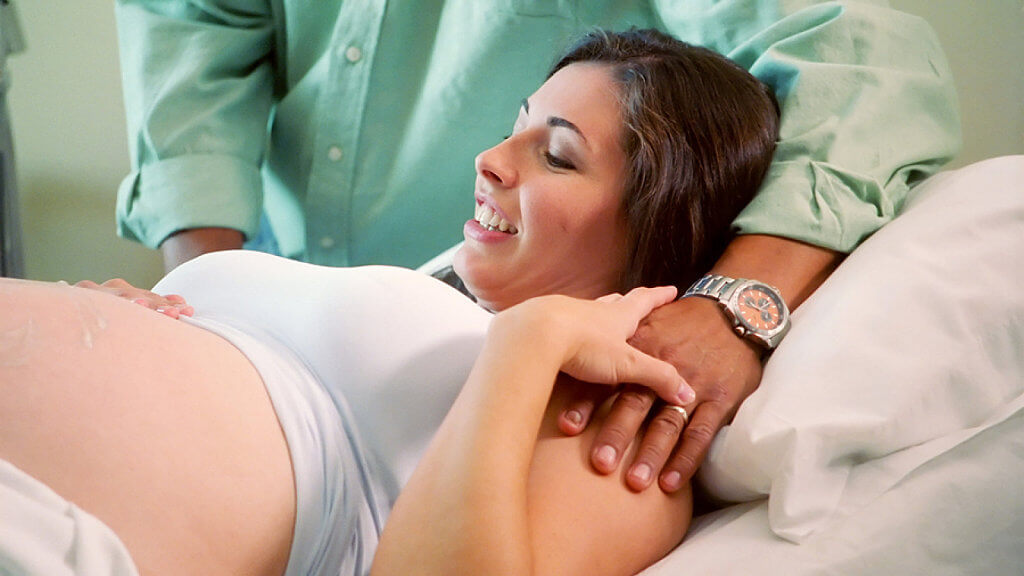6 Causes of Premature Contractions

If you’re at the beginning of your pregnancy and suddenly begin to feel abnormal abdominal activity, including a tightening or hardening of your uterus, you could be having premature contractions.
If you are more than halfway through your pregnancy, this could be a Braxton Hicks contraction which is no cause for concern.
Braxton Hicks contractions are very common after the second trimester. Almost all pregnant women have these contractions.
These are different than the contractions that you will feel when you are in labor because Braxton Hicks contractions are momentary and do not increase in intensity.
6 Things That Could Be Causing Your Premature Contractions
Breastfeeding
If you became pregnant soon after having a baby, it is possible that you are still breastfeeding him. Breastfeeding while pregnant can increase the abdominal pains caused by contractions.
For this reason, it is wise and also recommended that if you already have children, try to make sure that they are no longer breastfeeding before you try to become pregnant again.
Cravings
When you have a craving for something sweet during your pregnancy, be careful not to eat too much of it. When sugar reaches your baby through the umbilical cord, it will stimulate him and cause him to move more inside your belly.
This can cause abdominal discomfort that will lead to contractions.

Making Love
Just because you are pregnant doesn’t mean that your love life should end. On the contrary, pregnancy is a time when it’s even more important to make love to your husband.
Why? The state of arousal that is reached during sex causes the pelvic muscles to relax even more and the hormones will cause a higher level of arousal. On the other hand, after sex, you may feel contractions which are caused by semen.
In order to prevent these contractions, it is advisable to use methods such as condoms or diaphragms which will prevent the semen from reaching your uterus. By using these methods, your love life will not have to end.
Learn to Say “I Can’t” to Certain Activities
This is without a doubt one of the hardest challenges of motherhood, especially if you are the kind of woman that is used to doing everything for herself.
Remember that pregnancy is not an illness requiring you to lay in your bed all day long. It is rather a stage of life in which you should be very careful and stop doing certain activities for a while.
The majority of obstetricians recommend that you walk more slowly in order to prevent falls and agitation. Above all, you should not lift anything heavy.
If you always follow this advice, you will be able to avoid false contractions which can sometimes be alarming.

Infections
Another main cause of premature contractions and perhaps the most common are infections which often occur during pregnancy. Bacteria can irritate intimate areas.
Because of this, the most recommended form of action when you feel something irregular is to visit your specialist. Symptoms like those that come with urinary or vaginal infections can cause contractions during your pregnancy.
Don’t Despair
The mind controls the body. This is absolutely certain. That’s why, during pregnancy, you should try to stay away from tense situations and avoid feeling strong emotions such as rage or anger. These psychological factors can trigger involuntary contractions.
When you find yourself in a stressful situation, remember that the mind is in control. Breathe deeply, inhaling and exhaling, or sing a song that will help you forget the bad and the negative. The most important thing is to keep your mind calm during this time which will only last for a few months.
It’s easy to avoid things that can cause false contractions since they are simple. Just keep in mind these words of advice in order to have a calm pregnancy without surprises.
Be aware of any symptom that is out-of-the-ordinary and don’t hesitate to contact your specialist about any concerns.
If you’re at the beginning of your pregnancy and suddenly begin to feel abnormal abdominal activity, including a tightening or hardening of your uterus, you could be having premature contractions.
If you are more than halfway through your pregnancy, this could be a Braxton Hicks contraction which is no cause for concern.
Braxton Hicks contractions are very common after the second trimester. Almost all pregnant women have these contractions.
These are different than the contractions that you will feel when you are in labor because Braxton Hicks contractions are momentary and do not increase in intensity.
6 Things That Could Be Causing Your Premature Contractions
Breastfeeding
If you became pregnant soon after having a baby, it is possible that you are still breastfeeding him. Breastfeeding while pregnant can increase the abdominal pains caused by contractions.
For this reason, it is wise and also recommended that if you already have children, try to make sure that they are no longer breastfeeding before you try to become pregnant again.
Cravings
When you have a craving for something sweet during your pregnancy, be careful not to eat too much of it. When sugar reaches your baby through the umbilical cord, it will stimulate him and cause him to move more inside your belly.
This can cause abdominal discomfort that will lead to contractions.

Making Love
Just because you are pregnant doesn’t mean that your love life should end. On the contrary, pregnancy is a time when it’s even more important to make love to your husband.
Why? The state of arousal that is reached during sex causes the pelvic muscles to relax even more and the hormones will cause a higher level of arousal. On the other hand, after sex, you may feel contractions which are caused by semen.
In order to prevent these contractions, it is advisable to use methods such as condoms or diaphragms which will prevent the semen from reaching your uterus. By using these methods, your love life will not have to end.
Learn to Say “I Can’t” to Certain Activities
This is without a doubt one of the hardest challenges of motherhood, especially if you are the kind of woman that is used to doing everything for herself.
Remember that pregnancy is not an illness requiring you to lay in your bed all day long. It is rather a stage of life in which you should be very careful and stop doing certain activities for a while.
The majority of obstetricians recommend that you walk more slowly in order to prevent falls and agitation. Above all, you should not lift anything heavy.
If you always follow this advice, you will be able to avoid false contractions which can sometimes be alarming.

Infections
Another main cause of premature contractions and perhaps the most common are infections which often occur during pregnancy. Bacteria can irritate intimate areas.
Because of this, the most recommended form of action when you feel something irregular is to visit your specialist. Symptoms like those that come with urinary or vaginal infections can cause contractions during your pregnancy.
Don’t Despair
The mind controls the body. This is absolutely certain. That’s why, during pregnancy, you should try to stay away from tense situations and avoid feeling strong emotions such as rage or anger. These psychological factors can trigger involuntary contractions.
When you find yourself in a stressful situation, remember that the mind is in control. Breathe deeply, inhaling and exhaling, or sing a song that will help you forget the bad and the negative. The most important thing is to keep your mind calm during this time which will only last for a few months.
It’s easy to avoid things that can cause false contractions since they are simple. Just keep in mind these words of advice in order to have a calm pregnancy without surprises.
Be aware of any symptom that is out-of-the-ordinary and don’t hesitate to contact your specialist about any concerns.
All cited sources were thoroughly reviewed by our team to ensure their quality, reliability, currency, and validity. The bibliography of this article was considered reliable and of academic or scientific accuracy.
- OCHOA, A. y PEREZ DETTOMA, J.. Amenaza de parto prematuro: Rotura prematura de membranas. Corioamnionitis. Anales Sis San Navarra [online]. 2009, vol.32, suppl.1 [citado 2022-08-27], pp.105-119. Disponible en: <http://scielo.isciii.es/scielo.php?script=sci_arttext&pid=S1137-66272009000200011&lng=es&nrm=iso>. ISSN 1137-6627.
- Raines D, et al. Braxton Hicks Contractions. Disponible en: https://www.ncbi.nlm.nih.gov/books/NBK470546/.
This text is provided for informational purposes only and does not replace consultation with a professional. If in doubt, consult your specialist.








